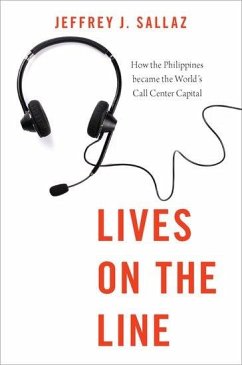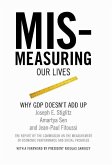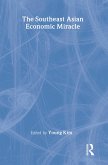Dial just about any toll-free number and chances are you'll be talking to a Filipino. In fact, around the year 2005, the country overtook India as the world's "voice capital." Lives on the Line argues that this has nothing to do with wages or accents. Rather, as Jeffrey J. Sallaz shows, there is a perfect match between offshored call centers and educated young Filipinos. For Filipina women and gay Filipinos in particular, call centers are veritablelifelines, and their lives tell us much about contemporary capitalism and the future of work.
Hinweis: Dieser Artikel kann nur an eine deutsche Lieferadresse ausgeliefert werden.
Hinweis: Dieser Artikel kann nur an eine deutsche Lieferadresse ausgeliefert werden.








